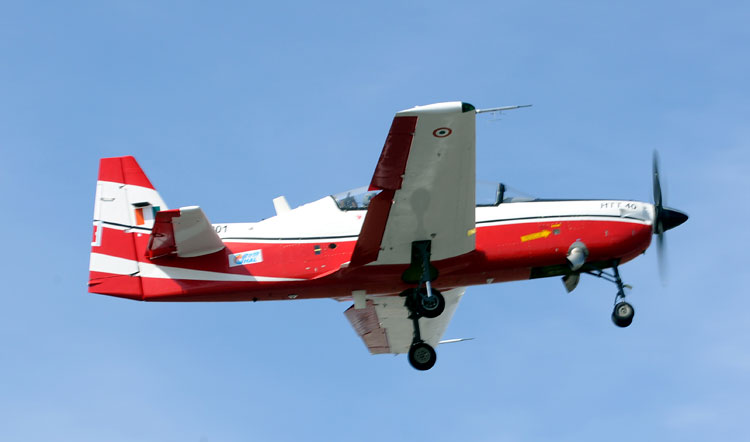INDIAN ARMED FORCES CHIEFS ON OUR RELENTLESS AND FOCUSED PUBLISHING EFFORTS

The insightful articles, inspiring narrations and analytical perspectives presented by the Editorial Team, establish an alluring connect with the reader. My compliments and best wishes to SP Guide Publications.

"Over the past 60 years, the growth of SP Guide Publications has mirrored the rising stature of Indian Navy. Its well-researched and informative magazines on Defence and Aerospace sector have served to shape an educated opinion of our military personnel, policy makers and the public alike. I wish SP's Publication team continued success, fair winds and following seas in all future endeavour!"

Since, its inception in 1964, SP Guide Publications has consistently demonstrated commitment to high-quality journalism in the aerospace and defence sectors, earning a well-deserved reputation as Asia's largest media house in this domain. I wish SP Guide Publications continued success in its pursuit of excellence.
Hindustan Turbo Trainer 40 (HTT-40) On The Roll
 |
The Author is Former Director General of Information Systems and A Special Forces Veteran, Indian Army |

Procurement of the indigenous Hindustan Turbo Trainer 40 (HTT-40) aircraft for the IAF is in the offing. In February 2010, the Defence Acquisition Council (DAC) had accorded an approval for the design and development of an indigenous basic trainer aircraft by Hindustan Aeronautical Limited (HAL), also approving procurement of this aircraft by the IAF. By then the IAF has fallen short of basic trainer aircraft after the indigenously manufactured Hindustan Piston Trainer 32 (HPT-32) nicknamed ‘Deepak’ were grounded following a series of accidents leading to loss of lives. Therefore, in addition to approving HAL to design and develop a replacement trainer for IAF in 2010, Ministry of Defence (MoD) also decided on an off-the-shelf purchase of basic trainers to meet immediate requirements. Subsequently, in 2012, India signed up for the Swiss aircraft manufacturer Pilatus Aircraft Limited to procure 75 x ready-to-fly PC-7 MkII at a cost of Rs 2,800 crore. Pilatus completed delivery of all 75 aircraft in July 2018.
The maiden flight of the prototype HTT-40 aircraft took place in 2016 instead of scheduled 2013 after three years delay. In September 2019, the HAL had successfully conducted a ‘six-turn spin test’ on a prototype of the HTT-40. The aircraft had returned to its original position each time after being thrown into multiple spins. In November 2019, Air Chief Marshal R.K.S. Bhadauria, Chief of the IAF, undertook a test flight of the HTT-40 in Bengaluru to ascertain the flight worthiness of the aircraft and its standards for training new pilots. According to the HAL, the design and development of the HTT-40, which is undergoing more ‘spin’ phase testing at present, will be completed by June 2020. The HAL is working towards completing the certification process of the basic trainer by meeting all parameters that have been required of it by the IAF. The HTT-40, which can be used for both flying training and aerobatic, other than night flying, has a maximum range of 1,000 km and a top speed of 450 mph. IAF has sought inputs from HAL for formulating a statement of case required for revalidating an Acceptance of Necessity (AoN) by the DAC chaired by Defence Minister Rajnath Singh meeting in May itself. For this a committee has been constituted with representatives from the Defence Research and Development Organisation (DRDO) and the Air Headquarters to finalise the documents required for verification of the indigenous content of the HTT-40, while HAL is in the process of providing these details to the IAF including cost of aircraft, support package and simulators. According to the IAF, the Request for Proposal (RFP) will be issued once the AON is revalidated by the DAC. In its 47th Report tabled in Parliament in January 2019, Parliament’s Standing Committee on Defence had noted, “The delivery of contracted volume of 70 BTA with HAL is planned to be completed over a period of five years post signing of the contract. As the trainer aircraft HTT-40 is yet to obtain certification even two years after first flight of prototype-I and the contract is yet to be signed and the [Defence] Ministry’s reply is conspicuously silent as to when the trainer aircraft is finally pressed into service, the Committee feel that IAF may have to persist with the shortages of trainer aircraft in the foreseeable future.” In the absence of adequate number of basic trainers, simulators are being used by the IAF for imparting flight training.
At present, the IAF has two fixed base full mission simulators, three cockpit procedure trainers and one avionics part task trainer along with associated equipment and infrastructure for the basic trainer aircraft. Air Chief Marshal Bhadauria had made it clear in October 2019 that plans to acquire the additional 38 aircraft from Pilatus have been dropped while the focus will remain on indigenous development of aircraft. MoD later informed the standing committee that during a review meeting of the programme conducted in August 2019, the planned date for completion of certification was fixed as April 2020 following which IAF would take forward the case. However, the HAL has now fixed June 2020 as the deadline for completion of design and development of the aircraft. At present, the existing strength of trainer aircraft including basic, intermediate and advanced trainers with the IAF is 260, as against the sanctioned strength of 388. This includes 75 Pilatus PC-7 MkII aircraft used for the purpose of basic training. The HTT-40 will be a good addition for IAF training and aerobatics though the time schedule needed for its induction is presently not known.





